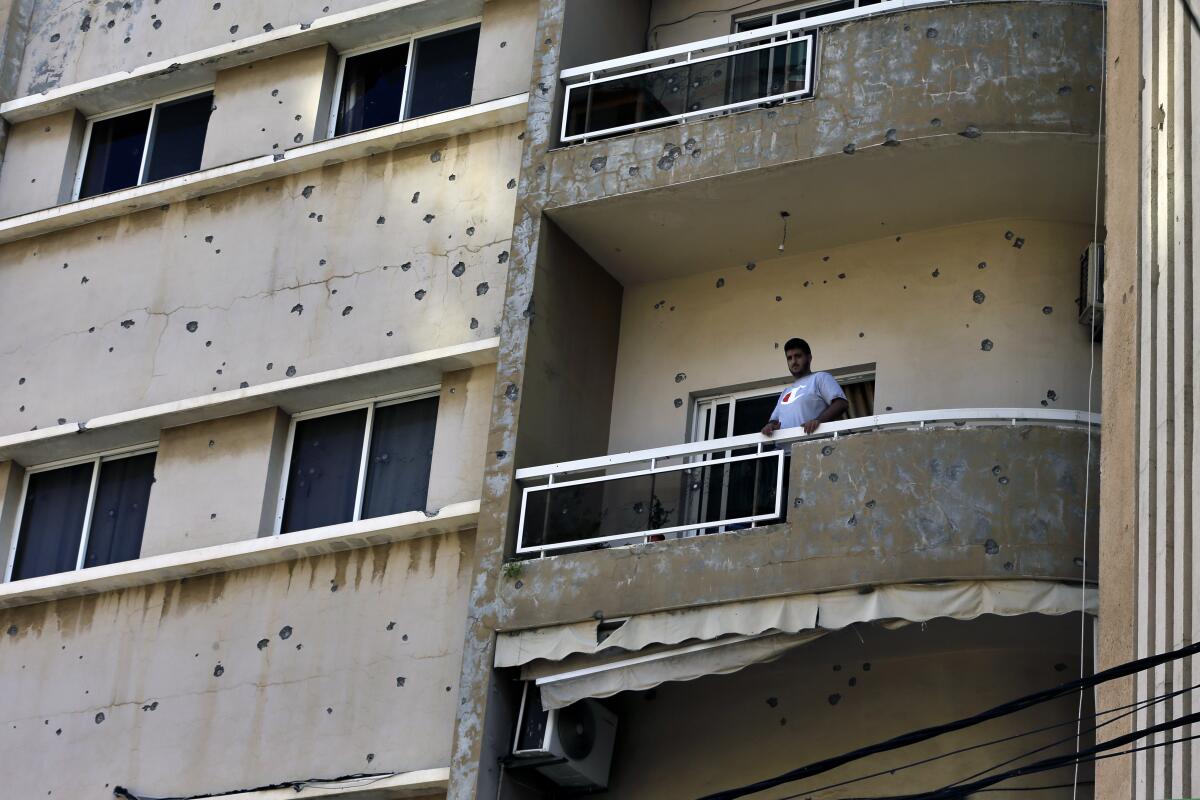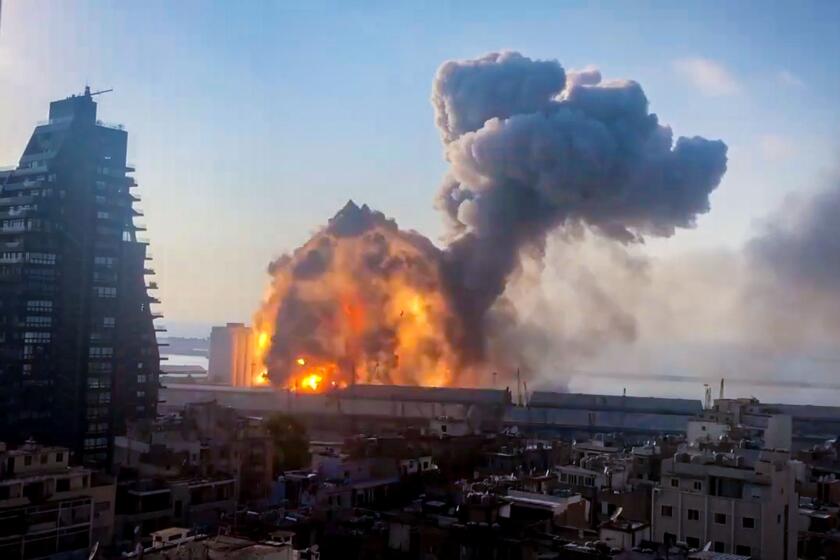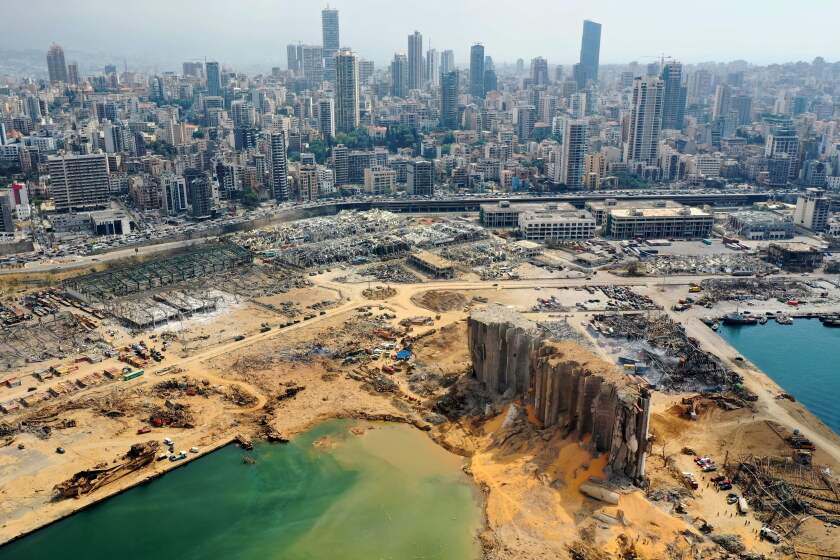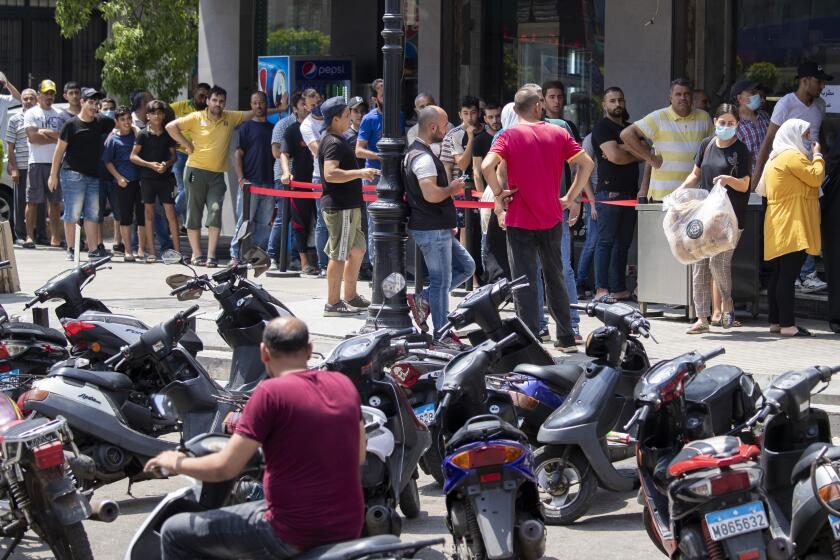A tense calm descends on Beirut after a day of deadly gun battles

BEIRUT — Schools, banks and government offices across Lebanon shut down Friday after hours of gun battles between heavily armed militias killed seven people and terrified residents of Beirut.
The government called for a day of mourning following the armed clashes, in which gunmen used automatic weapons and rocket-propelled grenades on the streets of the Lebanese capital, echoing the nation’s darkest era of the country’s 1975-90 civil war. The gun battles raised the specter of a return to sectarian violence in a country already struggling through one of the world’s worst economic crises of the last 150 years.
The violence broke out Thursday at a protest organized by the two main Shiite parties — Hezbollah and the Amal Movement — calling for the removal of the lead judge investigating last year’s massive explosion at Beirut’s port. Officials from the two parties have suggested that the judge’s investigation is moving toward holding them responsible for the blast, which killed at least 215 people.
Many of the protesters were armed. It was not clear who fired first, but the confrontation quickly devolved into heavy exchanges of gunfire along a former civil war frontline separating predominantly Muslim and Christian areas of Beirut.
Gunfire echoed for hours, and ambulances rushed to pick up casualties. Snipers shot from buildings. Bullets penetrated apartment windows in the area. Schools were evacuated, and residents hid in shelters.
The two Shiite groups said their protesters came under fire from snipers deployed on rooftops, accusing the Christian right-wing Lebanese Forces militia of starting the shooting.
The imposing grain silos at Beirut’s port mostly withstood last year’s massive explosion — but now serve as reminders of negligence and destruction.
The Health Ministry said an injured person died of his wounds Friday, raising the death toll to seven. Among the dead were two Hezbollah fighters and 45-year-old Mariam Farhat, a mother of five. Farhat was hit by a sniper’s bullet as she sat near the door of the balcony of her second-floor apartment, her family said Friday.
“We started screaming. She was taken on a stretcher but did not reach the hospital,” said Munira Hamdar, Farhat’s mother-in-law. She added that Farhat’s youngest daughter does not know that her mother has died and has been staying with her maternal aunt since Thursday.
“She is 5 years old. How is she going to understand?” Hamdar asked. “My son’s family is ruined.”
Residents in the Tayouneh area of Beirut, where most of the fighting played out, swept glass from the streets in front of shops and apartment buildings. Soldiers on armored personnel carriers were deployed on the streets, and barbed wire was erected at some street entrances. Many cars were damaged.
In Lebanon, a country scarred by civil war and its role as a geopolitical pawn, the official explanation behind the Beirut explosion is just one of many.
Tayouneh has a huge roundabout that separates Christian and Muslim neighborhoods. Newly pock-marked buildings off the roundabout sat next to ones scarred from the days of the civil war.
Hezbollah and Amal were to hold funerals for their dead later Friday.
Tensions over last year’s port blast and the ensuing investigation have contributed to Lebanon’s many troubles, including a currency collapse, hyperinflation, soaring poverty and an energy crisis that has led to extended electricity blackouts.
Judge Tarek Bitar, who is leading the investigation into the devastating Aug. 4, 2020, explosion, has charged and issued an arrest warrant for Lebanon’s former finance minister, who is a senior member of the Amal Movement and a close ally of Hezbollah. Bitar has also charged three other former senior government officials with intentional killing and negligence that led to the blast.
Shortages of basic goods have hit Lebanon as its leaders do little to resolve a long-running currency crisis that has sparked despair and desperation.
Officials from both Shiite parties, Amal and Hezbollah, have attacked Bitar for days, accusing him of politicizing the investigation by charging and summoning some officials and not others.
Bitar is the second judge to lead the complicated investigation. His predecessor was removed following legal challenges.
Ali Haidar, a 23-year-old Hezbollah supporter who took part in Thursday’s protest, accused some politicians of wanting to push the country into another civil war.
Echoing Hezbollah chief Hassan Nasrallah, Haidar said Bitar was taking taking dictates from “foreign embassies” and working to eventually blame Hezbollah for the port blast.
More to Read
Sign up for Essential California
The most important California stories and recommendations in your inbox every morning.
You may occasionally receive promotional content from the Los Angeles Times.













